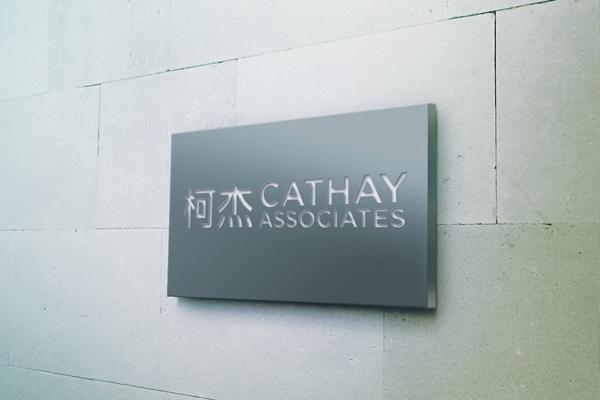
After nine months of preparation, Cathay Associates, a new legal service network, has been initiated by Beijing-based Cathay Associates Kejie along with 13 foreign law firms.
Led by Cathay Associates Kejie, Cathay Associates has members in 20 major cities in Europe and Asia, including Paris, Vienna, Madrid, Warsaw, Budapest, Prague and Kuala Lumpur.
The newly-established network employs over 700 staff globally and focuses on M&A, financing and strategic investment. All network members will provide legal services to clients under the “Cathay Associates Kejie” brand.
At the inauguration of Cathay Associates, attorney He Jie talks about the motivation for establishing the network, its integration into the national “One Belt, One Road” strategy and its future development plans in an interview with Shangjing Li.
ALB: Can you tell us about the structure of “Cathay Associates”?
At the beginning, we wanted to try a Swiss structure, but existing Swiss structure involved only two or several law firms. Our goal is to cover dozens of law firms across the five major continents. Operation-wise, a Swiss structure did not seem viable. At the same time, we will not rule out the possibility that we might go for a Swiss structure in the future.
There are many other law firm networks in the global market but they are loose networks. We are different from other networks as we will have a more intimate and active relation of cooperation and a central support hub.
As far as I know we are the first international boutique law firm network to be initiated by a Chinese law firm. Both the Chinese and English names of the network use our law firm’s name. The English name of our law firm has changed from “Ke Jie Law Office” to “Cathay Associates Kejie” as of Sept. 7, the day the establishment of the network was announced. So it can be said that the network is named after our law firm.
Through this network, we hope to create a “global virtual law firm,” with each member remaining legally and financially independent. Partners of traditional law firms are all natural persons. Our aim was to innovate in terms of organization. We asked ourselves: why can’t partners act as independent law firms? Of course, I refer to the organizational operation of law firms rather than the specific legal structure. This model does not have a specific name, it is something we’ve put together.
The structure is a contract-based one and does not need to be registered. The degree of closeness of the networks should be between that of Swiss structure and other looser networks.
ALB: Can you tell us about the motivation behind the establishment of the network?
We’ve undertaken quite a few overseas M&A projects in the last few years. In the past, most projects were in the developed nations in Europe and the U.S. But now, we have projects not only in developed nations but also in third-world countries like Indonesia, India, Vietnam and even Venezuela and Mozambique, places that used to be seen only on TV.
The demand has always been there. What is important is how well the demand is satisfied. Other law firms have their approaches, and we have our own. The traditional way is to team up with international law firms. But international law firms are especially expensive and “inflexible” and their network may not cover some regions in developing countries. For example, a client planning to invest in Indonesia hopes that you can offer it some basic ideas free of charge before entering formal trust relationship. It is very difficult for an international law firm to do so. With respect to meeting the needs of Chinese clients, many international law firms would face challenges in both fee-charging and work-style flexibility. That’s one of the major reasons why we established this network: on the one hand, to bridge such gaps; on the other, to provide global legal service to Chinese clients and help them face such challenges and blocks in a more suitable way as per their needs and requirements.
ALB: What’s the management structure of the network?
The network will set up a global management committee which would be responsible for the operation and management of the network. I will serve as the global chairman of the network and the management committee. My colleagues Rupert Varnai and Pascal Demko, foreign legal counsels at Cathay Associates Kejie, will serve as the global CEO and global managing partner of the network respectively.
ALB: How will the establishment of the network be combined with the national “One Belt, One Road” strategy?
“One Belt, One Road” is one among a range of themes or network covers. We will use “One Belt, One Road” as the starting point and then extend to major countries and regions in the five major continents. All of our current 14 members are important countries along the route of “One Belt, One Road”. Barring the member law firms in France and Spain, all other European member law firms are in Central and Eastern European countries. We believe Chinese companies will regard Central and Eastern Europe as a key part of the “One Belt, One Road” strategy. Compared to Central and Southeast Asia, these regions are more politically and socially stable and have relatively sophisticated legal systems. These regions also have massive infrastructure potential; we expect to see a lot of investment opportunities.
ALB: Is cooperation with member law firms exclusive?
In principle, our network is exclusive—in terms of having only one partner in each jurisdiction that we are present. This means that we first consult each other whenever there is a client demand in any of the Cathay Associates member countries. However, obviously, our clients’ needs are the top priority to us. If their matter requires a particular specialization that we, as Cathay Associates, do not have or we cannot offer the most competitive fee arrangement to the client then together with our local partner, we would recommend our clients the law firm that fits their needs the best.
ALB: Kejie used to focus on building a boutique firm. Will establishing the network and its subsequent expansion conflict with Kejie’s original intent?
My definition of a boutique firm has changed in the past few years.
I used to believe that a boutique firm must be small, but now I don’t think the size of the firm matters. The legal services provided should be of high quality and mostly focused on a few carefully selected areas. It can also be a big law firm if it can maintain high-quality attorney teams and services. Of course, there will be conflicts between ensuring quality and scaling up business. The key is to strike a good balance.
We hope to build a network in a relatively short period of time. We need to be quick in the Internet age. Our goal is to expand to 40 member firms by the end of 2016 and to cover major countries and regions globally.
ALB: What are the implications of having an English name “Cathay Associates”?
“Cathay” actually means China. In ancient Europe, northern China was called Cathay. At that time, northern China was called Qidan (契丹), i.e. Cathay. The Chinese concept can be found in our network from its name to its sponsor and management structure.
ALB: What are the future developments plans for the network and Kejie?
Kejie will open an office in Shanghai this year, in Shenzhen next year and in Chengdu the year after the next. We will expand in terms of size of staff, business areas and geographical range.
Kejie’s top priority is development within China, development outside China comes second. From the perspective of Cathay Associates Kejie, I need to find high-quality partners. From the perspective of the network, we need to find more high-quality member firms as we don’t know where Chinese companies will invest. For example, I never imagined Chinese businesses would extend as far as Venezuela or Mozambique. Maybe they will even go to Ethiopia in the future. Our immediate focus would be to prepare well and to expand quickly.



